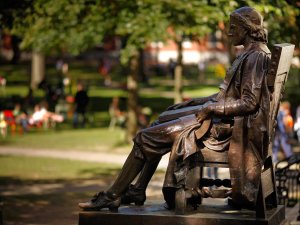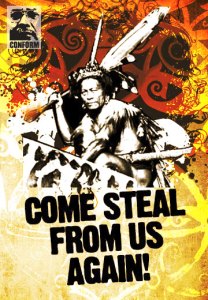December 1, 2016
Great Anniversary, Malaysiakini

Premesh Chandran, Steven Gan, Fathi Aris Omar and the great team of talented and brave journalists, you are very special Malaysians. My wife Dr. Kamsiah Haider and I admire your determination to bring to us in Malaysia and others around the world news and views on a timely basis. Please accept our sincere good wishes for many more years of exemplary journalism.
We stand with you and, as loyal subscribers, we thank you for keeping us posted on developments about our country. You will remain our web-paper of first choice because you are the best in the business.
To mark the occasion, your 17th Anniversary, Dr. Kamsiah Haider and I dedicate Alfred, Lord Tennyson’s “Ulysses” Tennyson to you all, our fellow travelers in search of the truth. Yes, we are not faultless. But we are Malaysians who care for our country and are not afraid to speak the truth to power. May Alfred Lord Tennyson inspire you to continue on a journey to do your best for Malaysia, and never to yield.–Dr. Kamsiah Haider and Din Merican
Seventeen years of Courageous Journalism
by http://www.malaysiakini.com
A long road traversed, dodging potholes, negotiating sharp bends as well as running into roadblocks and litigation hurdles.
Borne out of the intention to break the government’s monopoly on truth, Malaysiakini has helped provide a space for voices that are often unheard and ignored. Not surprisingly, the often-hurled allegation is that the news portal is pro-opposition. The answer is of course an emphatic ‘No!’

The dedicated Malaysiakini Team
Such allegations stem from what is known as the law of the excluded middle, where what is not white must therefore be black – there is no third alternative. In other words, if you are not with us, you must be against us.
Detractors argue that since greater prominence is given to those critical of the government, as opposed to others, Malaysiakini must therefore be taking sides.
The first part of the argument is valid, but this does not lend credence to the notion that the editorial team therefore comprises opposition cheerleaders.
There are two reasons for this.
The first is that those in the opposition are more productive in generating media statements and more active in engaging with the media, compared to their ruling counterparts, where apart from a handful, the rest choose to remain silent or prefer to confide in acquiescing media organisations.
The second, and more important factor, is that the media, as the fourth estate, must help create a level-playing field in the information arena.

The undeniable fact in Malaysia is that the ruling BN and its component parties still control the narrative in almost all major newspapers, radio and TV stations.
In addition, despite repeated denials, the actions of certain powerful individuals helming institutions of supreme importance in our country suggest clear bias in favour of the government.
When the chasm of disparity in influence is so wide, it would be a disservice to justice if Malaysiakini provided equal space to all.Indeed, when power is so lopsided, giving equal coverage to both sides only maintains injustice. To overcome this, media organisations must give a greater say to those without a voice, those without power, and those without influence.
We seek to challenge unequal power structures, not to reproduce them. However, if and when the scales are level, Malaysiakini too will provide a balanced space for both sides.That said, Malaysiakini is non-partisan. Our role is to tell truth to power and hold them to account, be they BN or opposition politicians.
But that doesn’t mean we are apolitical. We take strong editorial stance on many issues we hold dear – good governance, anti-corruption, independence of the judiciary, press freedom and the like.
However, this does not mean Malaysiakini provides the opposition with a carte blanche. The news portal recognises that the opposition is no longer a voice in the political wilderness but rather a government-in-waiting – it is already in power in some states – and therefore it too must be held accountable.
And while Malaysiakini supports freedom of expression, it must be stressed that such liberties come with responsibility – for both writers and readers.
Malaysiakini encourages the contestation of ideas, but it is just as important to ensure that this democratic process is carried out in a civil manner, without resorting to personal attacks, racist and sexist remarks or lewd comments.
One of the most common complaints against Malaysiakini is that the news portal spins articles, ostensibly to further a certain agenda.
More often than not, it is the politician who does a 180-degree turn after shooting his or her mouth off – and then blames the media when the heat is turned on.
But does this mean Malaysiakini is faultless?The answer is ‘No’. We do make mistakes. But unlike politicians, we admit and apologise instead of blaming others.









